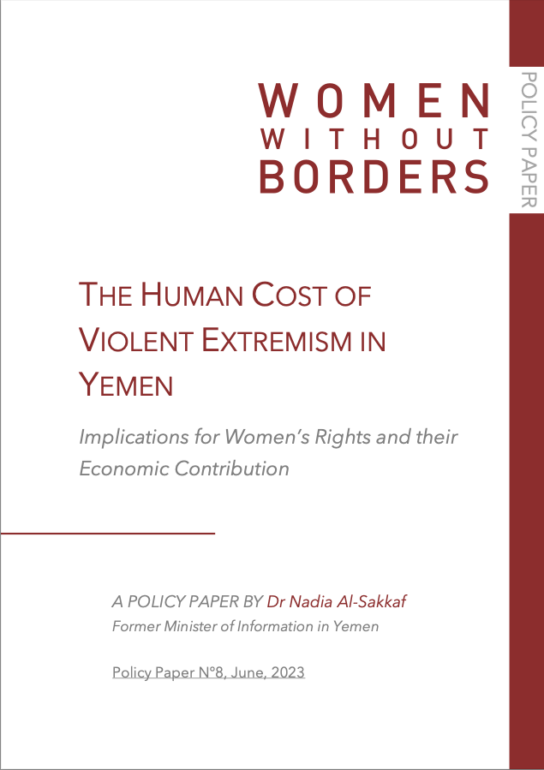Women without Borders’ (WwB) launched its ‘MotherSchools Parenting for Peace in Nigeria’ project in the city of Jos in 2015. This pilot iteration succeeded in building up the participants’ ability to intervene in the lives of children at-risk of radicalisation on the one hand, and brought together mothers from the Muslim and Christian communities which have been caught up in violent conflict since 2001 on the other hand. WwB’s MotherSchools Nigeria project provided mothers with an opportunity to observe open communication in action, and to play an active role in the peacebuilding process in their homes and communities.
Uniquely located between Africa’s Muslim North and Christian South and home to approximately half a thousand languages, Nigeria has a wide array of unique identities. Since gaining independence from Britain in 1960, the country has faced political instability and frequent violent outbursts sparked by religious and ethnic tensions. A pattern of violence emerges during general and local elections, with conflict frequently erupting between Muslim and Christian communities, notably in the Jos riots of 2008 during which at least 761 people were killed. The Islamist group Boko Haram, which aims to establish an Islamic State in Nigeria, leads the way in religiously-motivated violence and has been known to use children in its campaigns, as well as allegedly counting a number of teenagers amongst its leaders. While religious belief plays an important role in the recruitment strategies of Boko Haram and similar groups, social problems—including low literacy and employment rates, coupled with high poverty–also help to push young Nigerians into violent extremism.
While mothers are in the closest proximity to children and adolescents at risk of radicalisation, women’s relatively low status in Nigerian society creates a barrier between mothers and maturing children, making it difficult for them to establish a healthy dialogue, or for children to listen to their mothers’ advice. The combined risk of radicalisation and the lack of female involvement in decision-making and prevention strategies made Nigeria a prime location for the implementation of Women without Borders’ (WwB) MotherSchools Model. The programme serves a double function of developing new community-based strategies for preventing and countering violent extremism (P/CVE) and increasing female agency by providing mothers with much-needed knowledge and parenting skills, with a focus on communication and negotiation.
WwB’s MotherSchools Nigeria pilot was unique in incorporating a peacebuilding component to bring together the Muslim and Christian communities in the city of Jos. Women without Borders brought together a total of 97 mothers from both religious groups, starting a dialogue between two communities often defined by animosity. Another success of MotherSchools Nigeria was the concept of ‘cross-mothering’. When a MotherSchools participant shared her growing concerns about her son spending time with members of a radical group and her despair at his unwillingness to listen to her, the MotherSchools Teacher agreed to accompany the mother to her house to speak with her son. The cultural practice of engaging with guests guaranteed that the boy would have to stay and listen. The Teacher and mother sat down together and discussed the young boy’s behaviour and the potential dangers of engaging in problematic groups. He listened and reportedly eventually broke contact with this group.
From their experiences in the MotherSchools, the participants learned that there is merit to uniting, and that even when children do not heed their own mother’s advice, parents and community members can take steps to intervene in the process of radicalisation. This message is central to the MotherSchools philosophy, and Women without Borders has been sharing this example in training workshops since the conclusion of MotherSchools Nigeria. Ultimately, MotherSchools builds not only individual confidence and competence; it also fosters a sense of community and group cohesion amongst women and mothers working towards a common goal.


